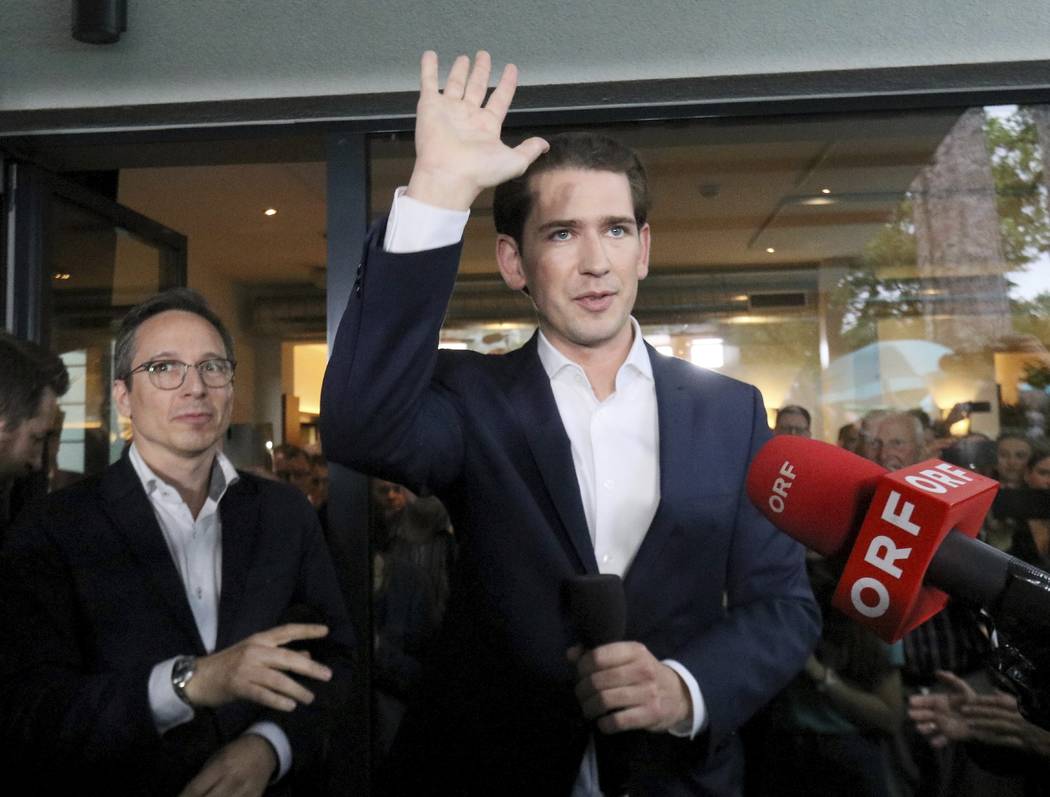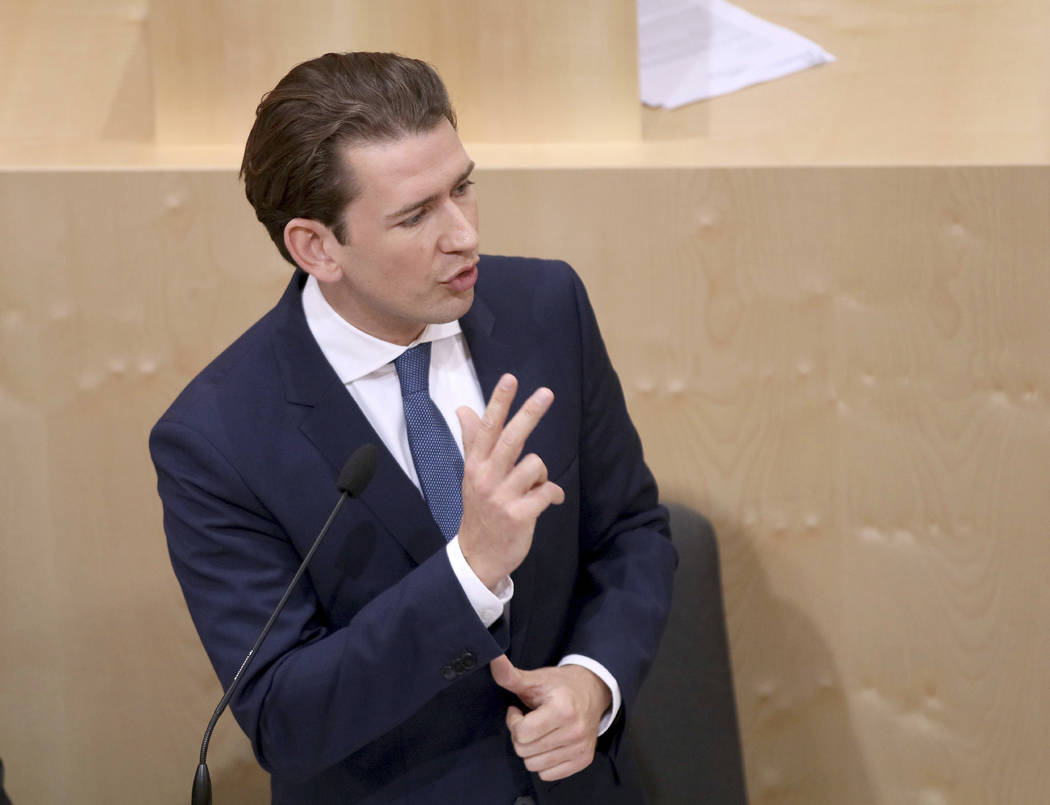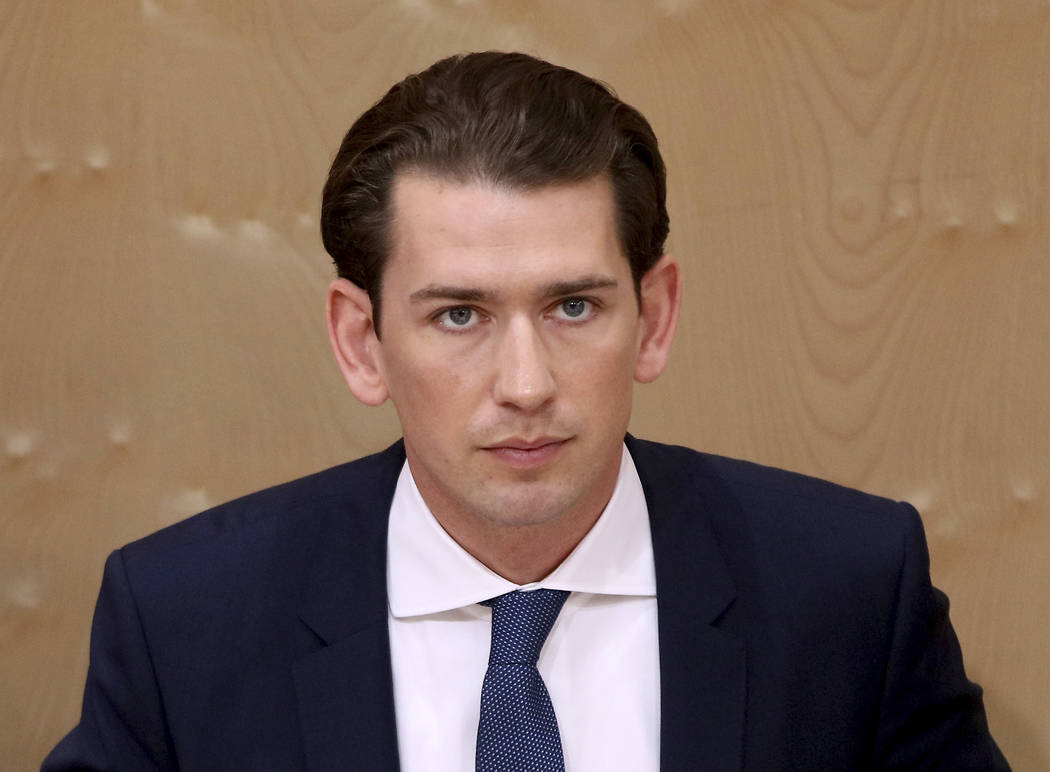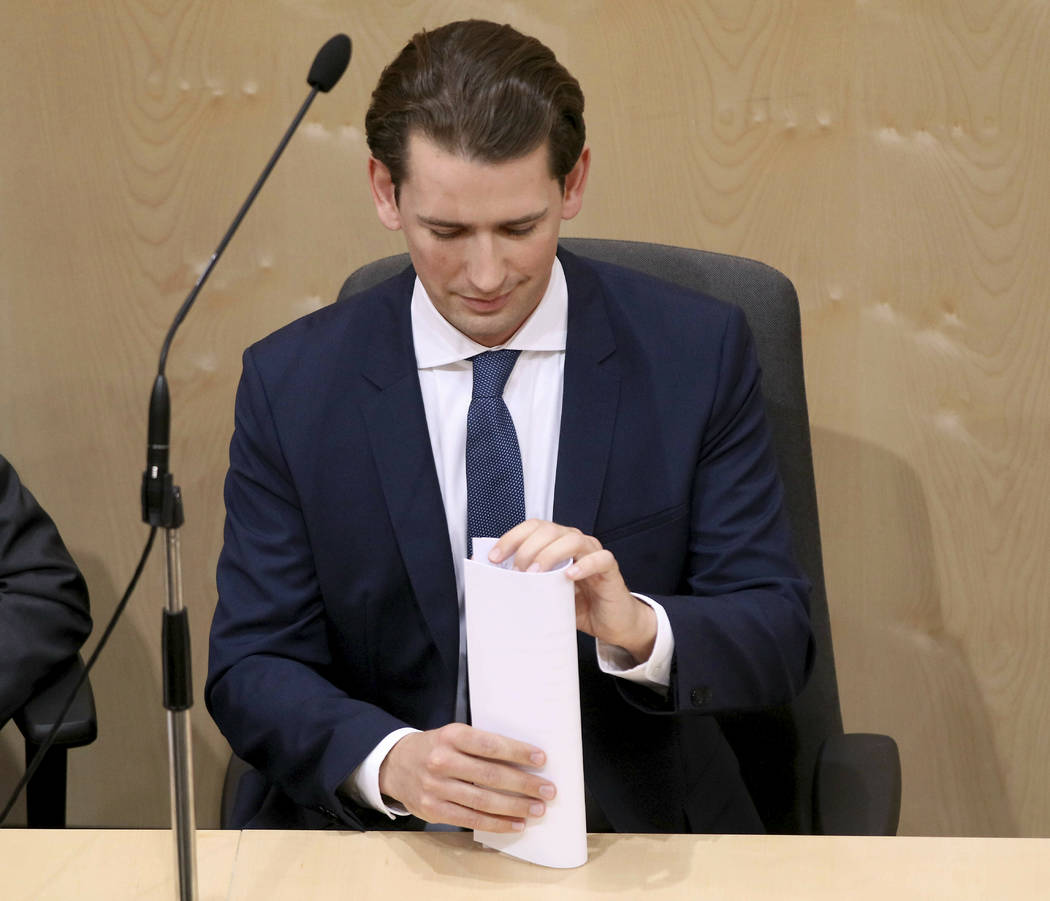Austrian chancellor out after parliament’s no-confidence vote
VIENNA — Austrian Chancellor Sebastian Kurz was ousted by parliament in a no-confidence vote Monday, paving the way for a new election. The young leader, riding high in popular support, defiantly vowed that he and his center-right People’s Party would return to power with increased strength.
The vote capped a week of turmoil at the top in Austria that started when Kurz pulled the plug on his coalition with the far-right Freedom Party after a video emerged showing that party’s leader appearing to be offering lucrative government contracts to a purported Russian investor.
A new election is already planned for September, and President Alexander Van der Bellen now needs to appoint a caretaker government to serve until then.
Less than three hours after losing his job, Kurz appeared before a cheering crowd outside party offices in Vienna, pledging that “the changes that we began two years ago will not end today.” He said he looked forward to helping the interim government ensure stability in the coming months, and would fight to win back his position.
“In the end the people will decide in September, and I’m happy about that,” he said to chants from the crowd of “Chancellor Kurz.”
He lashed out at the Freedom Party as well as the opposition Social Democrats, who brought the no-confidence vote, saying from them “we have only heard one thing, that Kurz must go, that’s the only platform of those two parties and I’m afraid to say I must disappoint them both: I’m still here.”
No-confidence votes are common in Austrian politics, but this is the first one to have succeeded in its modern history. The result makes Kurz the shortest-serving chancellor since 1945 with 525 days in office, according to the Austria Press Agency.
Before the fall election, Kurz now loses the advantage of campaigning as an incumbent chancellor but remains popular and his center-right party finished first Sunday in Austria in the European Parliament election with 34.9% support, a gain of almost 8 percentage points over 2014.
The 32-year-old, who became Europe’s youngest leader when he was sworn in just before Christmas 2017, remained composed earlier in the day amid withering criticism from opponents in parliament before the no-confidence vote.
He told the body that he was “proud and satisfied with the work we have done as a government in the past year and a half” and pledged to work constructively with the caretaker government.
“We will certainly not put any stones on the path of the next government,” he said. “We will support them as much as possible.”
Kurz also suggested he had no choice but to end his partnership with the Freedom Party after the video of Heinz-Christian Strache emerged. Strache has since resigned as Freedom Party leader, and his party’s ministers were replaced last week by interim technocrats until the new election.
“It was clear for me that it meant the end of the coalition,” Kurz said.




















